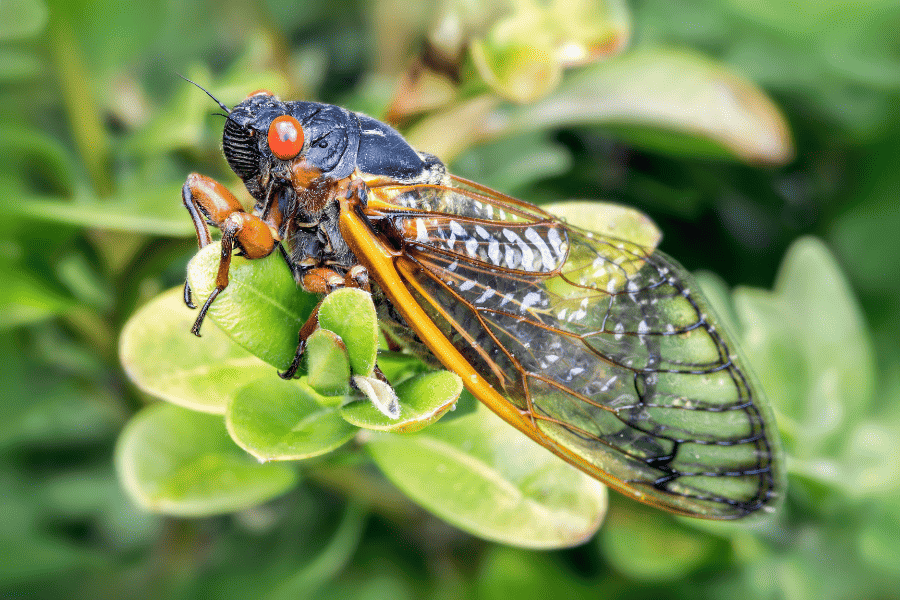Anyone who resides in the southeastern region of the US knows that summertime means higher humidity and the buzzing sound of insects. But what’s making that sound? It’s most likely a cicada! These insects, with their distinctive buzzing calls and unique lifecycles, are a fascinating subject of study and observation. Let’s dive into what cicadas are, their habitat, and what they do.
What are Cicadas?
Cicadas are large insects with transparent wings, prominent eyes, and often vibrant colors. They spend most of their lives underground as nymphs, feeding on tree roots. However, they emerge as adults in periodic cycles, typically every 13 to 17 years depending on the species, to mate and lay eggs.
What is the Habitat of a Cicada?
They inhabit a wide range of environments, from forests to tropical jungles, commonly found in regions with trees and shrubs, as their nymphs rely on plant roots for substance. Cicadas are particularly prevalent in areas with well-drained soil since they remain underground for long periods of time.
The Lifecycle and Behavior of Cicadas
After spending years underground, cicadas emerge synchronously in large numbers. This mass emergence, known as a brood, is thought to be an evolutionary strategy to overwhelm predators and increase the chances of successful mating.
Once above ground, adult cicadas spend their brief adulthood reproducing. Males will produce a distinctive buzzing call to attract females, which can reach deafening levels in volume. After mating, females will lay their eggs in tree branches, where the nymphs will hatch and drop to the ground to begin their underground existence.
The Importance of Cicadas
Despite their loud buzzing call, cicadas play an important role in the ecosystem. As both nymphs and adults, they serve as a food source for birds, mammals, and even other insects. Their emergence can also enrich the soil with nutrients as the decomposing bodies of deceased cicadas return vital nutrients back to the soil. They can also contribute to the pollination of plants during their adult stage, although to a lesser extent than bees or butterflies.
Although the buzzing sound of the emerged adult cicadas can reach high levels of sound, their adult lifespan is typically short lived and ends after they successfully mate. If you find your property surrounded by cicadas, give a pest control company near you a call!

